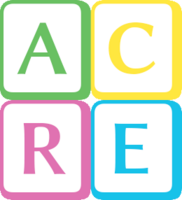Your current state
Most communities implementing HIFIS 4 are not starting from scratch.
The truth is, in a pre-HIFIS 4 world, communities did something to get data for reporting. What the something is, however, will have an impact on how you are going to approach the idea of data conversion. We're going to call this your current state.
Your current state may look like any of the following (or even none of them):
- Some or all of your partner agencies are using HIFIS 3
- Some or all of your partner agencies are using another data system, like WISH or YARDI or SAMS or COTS or ETO or Bowman
- Some or all of your partner agencies are doing their own data management, and might even have paper files or case notes stored in Word documents on various computers
- You have good data about a subsection of your homeless population - for example, those on the social housing waiting list, or those receiving social assistance - but are missing data for lots of other subsections
- You don't know how your partner agencies are currently managing their data
- You have a By-Name List that is stored in Excel or Google Sheets and a process by which people can make edits to the BNL
As you can see, there's a lot of different current states that a community could be in prior to HIFIS 4 implementation.
When considering whether you want to convert data from your old system to your new system, there's a few things you'll want to look at:
- Is the data valuable? Partner agencies could have prior data that is not particularly valuable or relevant. For example, they might have complete data for all the per diem billing a client had accumulated, which is important for an accountant but not as valuable for a Coordinated Access System.
- Is the data of high quality? A partner agency could have years and years of data of low quality. For example, they could record a nickname and an aggregated number of bed nights for each month (i.e. "Mickey" stayed for 17 nights in January 2015). If you're not able to get to identifiable clients and specific dates, the data might not be high quality.
If the data is not valuable or not high quality, it might not be worth the effort to convert.
- How is the data currently being stored? If it's being stored on paper right now, then data conversion will look a lot different than if it's being stored digitally. If it's being stored digitally, how can it be exported?
- What are the resources we are willing to dedicate to data conversion? It's unrealistic to expect that you can just click a button and convert all your data perfectly, so you would need to manage the conversion. Do you have staff that can spend time on quality control? Do you have money available in the budget to contract an IT expert to facilitate the conversion? Do you have IT resources in house that will supervise this process?
If your data isn't currently being stored nicely, and/or if you don't have resources available, it might be too difficult to convert your data.

























